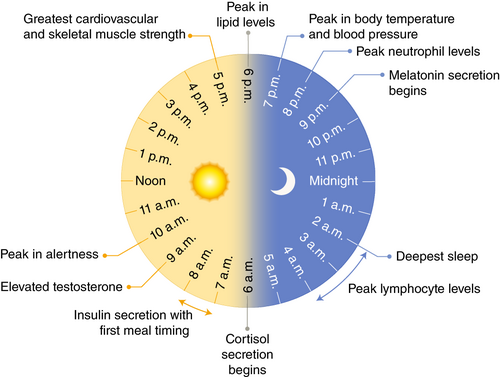"Let There Be Light"
"Let there be light!"―the very first words God speaks in Genesis are a powerful declaration of His divine authority (Genesis 1:3). This command brought forth light, separating it from darkness and setting the stage for life to flourish. Sunlight, as the primary source of physical light, is a daily reminder of God's awe-inspiring creative power and His ongoing presence in the world.

The Psalmist beautifully captures this in Psalm 84:11, where God is called "a sun and shield." This metaphor emphasizes God’s protective and life-sustaining role. Just as the sun provides warmth, light, and energy necessary for life, so does God provide spiritual nourishment and protection for His people.
Sunlight also represents guidance and truth in the Bible. Psalm 119:105 declares, "Your word is a lamp to my feet and a light to my path." Here, the light is symbolic of God's word, guiding believers through life's complexities. With its unwavering consistency, Sunlight mirrors the steadfastness of God’s truth, illuminating the path of righteousness and helping believers avoid the pitfalls of darkness or sin, providing a constant source of reassurance.

In the New Testament, Jesus Himself is described as "the light of the world" (John 8:12). Just as the sun rises to chase away the night, Jesus' teachings and sacrifice dispel the darkness of sin and ignorance, offering the hope of salvation to all who follow Him. His light is not just guidance for moral living but a revelation of God’s love and truth.
The daily cycle of the sun, rising each morning and setting each evening, is a potent symbol of renewal and hope in the Bible. Lamentations 3:22–23 remind us that "His mercies are new every morning." Just as the sunrise heralds a new day, God’s grace offers believers a fresh start, regardless of the struggles or failures of the previous day.
As you can see, Scripture ties sunlight and the Lord very closely. So, what does science have to say about the significance of the sun? Light was the first thing God spoke into being. All life on Earth requires sunlight to survive―that includes humans!
The daily light cycle supports circadian rhythms. Circadian rhythm is a fundamental aspect of our biology, influencing nearly every system in the body. This internal 24-hour clock regulates our sleep-wake cycles, hormone release, body temperature, and other vital functions. Although often overlooked, maintaining a healthy circadian rhythm is crucial for overall well-being. Disruptions to this natural cycle can have far-reaching consequences, impacting everything from sleep quality to metabolic health.

God's Natural Cycle
The light-dark cycle is the most significant external cue, but factors like temperature, social interaction, and meal timing also play a role in fine-tuning the circadian rhythm. The body functions efficiently when this rhythm is aligned with the natural cycle God instilled in creation. One of circadian rhythm's most well-known roles is its sleep-wake cycle regulation. The rhythm dictates when we feel alert and when we feel sleepy, typically aligning wakefulness with daylight hours and sleep with nighttime. Melatonin, a hormone the pineal gland produces, is vital in this process. As darkness falls, melatonin levels rise, signaling to the body that it’s time to prepare for sleep.
Disruptions to circadian rhythm, such as those caused by shift work or excessive exposure to artificial light (cell phones, overhead lights, TV, etc.), can interfere with melatonin production and the sleep-wake cycle. This can lead to sleep disorders like insomnia, as well as a host of other health problems linked to poor sleep, including impaired cognitive function, weakened immune response, and increased risk of chronic conditions like heart disease and diabetes.
Effects on Mental Health
Circadian rhythm has a profound impact on mental health. Numerous studies have shown that disruptions to the circadian cycle can contribute to mood disorders such as depression, anxiety, and bipolar disorder. For example, individuals with irregular sleep patterns or those who work night shifts are at a higher risk of developing depression. The connection between circadian rhythm and mental health is partly due to the rhythm’s influence on neurotransmitters like serotonin and dopamine, which regulate mood and emotional well-being. Additionally, poor sleep quality, often a result of circadian misalignment, exacerbates mental health issues by affecting cognitive function and emotional regulation.
Effects on Metabolism
Playing a crucial role in metabolism, circadian rhythm also regulates the timing of insulin sensitivity, glucose metabolism, and energy expenditure, ensuring that the body processes food efficiently. Disrupting this rhythm can lead to metabolic imbalances, increasing the risk of obesity, type 2 diabetes, and other metabolic disorders. For instance, eating irregularly, particularly late at night, can misalign the circadian rhythm and lead to weight gain and insulin resistance. This is because the body’s ability to metabolize food fluctuates throughout the day, with insulin sensitivity being higher in the morning and decreasing as the day progresses. It’s easier to maintain a healthy weight and reduce the risk of metabolic diseases by aligning mealtimes with the body's natural metabolic rhythm.
Effects on Cardiovascular Health
The circadian rhythm also influences cardiovascular function. Blood pressure, heart rate, and other cardiovascular processes follow a daily rhythm, typically peaking in the late morning and evening. Disruptions to this rhythm can increase the risk of cardiovascular events like heart attacks and strokes, which are more likely to occur in the morning due to the natural spike in blood pressure. Shift work, irregular sleep patterns, and chronic stress can all disrupt circadian rhythm and, in turn, negatively impact cardiovascular health. Maintaining a regular sleep-wake schedule and minimizing exposure to light at night can help protect cardiovascular health by supporting a stable circadian rhythm.

Getting Aligned with God's Design
Given the importance of circadian rhythm to overall health, supporting and maintaining this natural cycle is essential. Here are some tips to keep your circadian rhythm aligned:
- Aim for 7–9 hours of sleep each night, going to bed, and waking up at consistent times, even on weekends.
- Spend time outside at sunrise and during the UVA light 1–2 hours after sunrise to help regulate your circadian rhythm and signal to your body that it’s time to be awake and get things functioning.
- Reduce exposure to blue light from screens and artificial lighting in the evening and create a dark, restful environment for sleep. Things like orange/red tinted blue blocking glasses and soft amber light bulbs in lamps versus overhead lights are beneficial. Avoid using any devices at least 1 hour before bed.
- Eat meals at consistent times each day, ideally aligning with your body’s natural rhythm by having larger meals earlier in the day than at dinner time.
- Engage in regular physical activity, preferably earlier in the day, to support a healthy circadian rhythm and overall well-being.
Living in the Light
Circadian rhythm is a critical component of human health, influencing sleep, mental health, metabolism, and cardiovascular function. Maintaining a healthy circadian rhythm is not just about getting enough sleep; it involves aligning our daily activities with our body’s natural clock, designed by God. By prioritizing regular sleep patterns, light exposure, and consistent mealtimes, we can support our circadian rhythm and, in turn, promote better overall health and well-being.
In a world that often demands flexibility and round-the-clock activity, respecting and nurturing our internal clock is a decisive step toward long-term health. Observing the sunlight each day can remind us of the spiritual truths we discussed and draw us closer to the God who created the light and who Himself is light.
Whether it is the first rays of dawn or the blazing midday sun, each moment of sunlight is an invitation to reflect on God’s enduring love and His eternal light that guides and sustains us while supporting His design for our bodies.
Author Bio:
Howdy! My name is Gabrielle Terry, but you can call me Gabby. My husband, Riley, and I (married since October 2022) live in the beautiful state of Georgia! Currently, I am the youngest person on staff at Reasons for Hope, and most of the time, you will see me on the streets with a microphone in my hand doing Mic'dUP interviews. I also help teach youth groups to go out and evangelize through Mic'dUP!
Besides evangelism, I greatly admire how God designed our bodies and what we can do to support them. I wanted to be able to help others learn this information, so I became a Nutritional Therapy Practitioner. Now, I can help people understand the foundations of what our body needs to thrive through holistic practices with a Christian perspective. If you want more information on what I do as an NTP, please email me at gabrielleterry@rforh.com.
Howdy! My name is Gabrielle Terry, but you can call me Gabby. My husband, Riley, and I (married since October 2022) live in the beautiful state of Georgia! Currently, I am the youngest person on staff at Reasons for Hope, and most of the time, you will see me on the streets with a microphone in my hand doing Mic'dUP interviews. I also help teach youth groups to go out and evangelize through Mic'dUP!
Besides evangelism, I greatly admire how God designed our bodies and what we can do to support them. I wanted to be able to help others learn this information, so I became a Nutritional Therapy Practitioner. Now, I can help people understand the foundations of what our body needs to thrive through holistic practices with a Christian perspective. If you want more information on what I do as an NTP, please email me at gabrielleterry@rforh.com.

Have you downloaded the Reasons for Hope App yet?
Get it on your smart device today! Just search Reasons for Hope in your app store and look for the blue asterisk. Hours of FREE content to help you Know It! Live It! Share It!

Posted in Gabby Terry
Posted in Gabby Terry, Reasons for Hope, Genesis 1:3, Psalm 84:11, Psalm 119:105, Lamentations 3:22-23, Circadian rhythm, God is light.
Posted in Gabby Terry, Reasons for Hope, Genesis 1:3, Psalm 84:11, Psalm 119:105, Lamentations 3:22-23, Circadian rhythm, God is light.
Recent
Archive
2026
2025
February
March
April
May
June
July
August
November
2024
February
March
April
May
June
July
August
September
November

No Comments